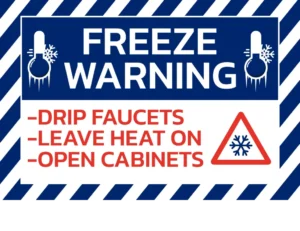Safeguard your property and financial interests

6 Ways to Arm Yourself Against Deadbeat Tenants
Finding reliable tenants is the key to successful property management. But how can you be confident that tenants will pay their rent on time and will not do damage to your rental property?
You can’t trust your intuition or cross your fingers when you sign a lease with a tenant. Without careful screening, you may have to eventually contend with tenants who don’t uphold their lease obligations.
Here’s how to safeguard your property and financial interests from deadbeat tenants:
1. Thorough tenant screening
- Implement a robust screening process: An immediate, comprehensive landlord credit check will help shield your real estate assets against deadbeat tenants, expensive eviction costs and loss of rental income in addition to avoiding a great deal of aggravation.
- Run background checks and confirm the applicant’s financial stability with employment and income verifications to ensure they can comfortably afford the rent.
- Verify references: Contact previous landlords to gain insight into a potential tenant’s past behavior.
- Be consistent and fair: Apply the same screening criteria to all applicants to comply with fair housing laws and avoid discrimination claims.
2. Strong lease agreement
Draft a comprehensive lease agreement. Clearly outline payment terms, due dates, late fee policies, property maintenance responsibilities and behavior expectations, such as noise levels, guest limits, etc.
Include clauses for lease violations and eviction procedures. Ensure the lease covers subletting restrictions, rules for breaking the lease and the legal process for resolving disputes.
Ensure that your lease complies with local landlord-tenant laws and is legally enforceable.
3. Financial safeguards
- Cover potential damages or unpaid rent by requiring a security deposit.
- Protect yourself from property damage, lost rent and legal expenses by investing in landlord insurance.
Screen Your Tenant Today!
Gain peace of mind with AAOA’s credit, criminal, and eviction reports.
4. Effective communication and documentation
Maintain professional communication: To develop a positive relationship and prevent disputes from escalating, address tenant concerns promptly and respond to maintenance requests quickly.
Document everything: Keep detailed records of all interactions, including rent payments, repair requests and rule violations. These records can be crucial evidence if legal action becomes necessary.
Conduct regular inspections: Schedule inspections at least twice a year to check the property’s condition and address potential issues early.
5. Proactive measures for non-payment
- Some state or local laws require a grace period before late fees can be charged.
- Keep a legal record of non-payment and send late-rent notices as soon as the rent is overdue.
- Communicate with the tenant and offer potential solutions, such as payment plans, if appropriate.
6. Taking legal action when necessary
- Understand your rights by familiarizing yourself with landlord-tenant laws and eviction procedures in your area.
- If rent remains unpaid, serve a “Pay or Quit” notice. This formal notice gives the tenant a specific timeframe (e.g., three to seven days, depending on local laws) to pay the overdue rent or vacate the property.
- Consider “Cash for Keys” as a last resort. In some situations, offering a financial incentive to vacate can be more cost-effective than a lengthy eviction process.
- If the tenant fails to comply with the “Pay or Quit” notice, you may need to file an unlawful detainer lawsuit and follow the formal eviction process to regain possession of your property.
- Hire an attorney specializing in landlord-tenant law to navigate complex cases and ensure compliance with all regulations.
By implementing these preventative measures and taking appropriate action when issues arise, you can minimize the risk associated with renting to deadbeat tenants and protect your investment.
Source: Rental Housing Journal













 Accessibility
Accessibility